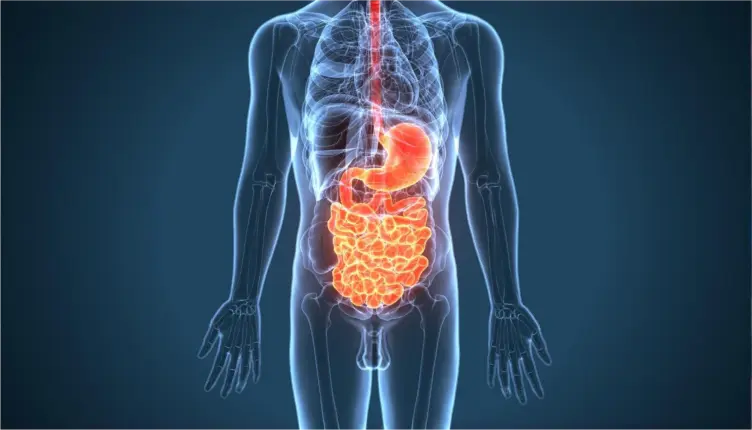
1000
You must have heard that not everyone suffering from IBS has the same symptoms. These widely varying symptoms are one of the reasons why managing IBS can be so difficult. To better manage and treat IBS, it's important to understand its different subtypes diagnosed by a Gastroenterologist: IBS with diarrhoea (IBS-D), IBS with constipation (IBS-C), and mixed IBS (IBS-M). Each subtype has distinct characteristics and requires tailored approaches for effective management.
IBS-D is characterised by frequent and loose stools, often accompanied by urgency and abdominal discomfort. People diagnosed with this subtype may experience several episodes of diarrhoea in a single day, which can be both physically draining and socially disruptive.
Frequent Diarrhoea: The hallmark of IBS-D is regular bouts of diarrhoea, which can occur suddenly and without much warning.
Abdominal Pain and Cramping: These symptoms are often relieved after a bowel movement but can be quite severe before.
Urgency: There is a strong, often uncontrollable need to have a bowel movement.
Bloating and Gas: Many individuals with IBS-D also report significant bloating and flatulence.
Dietary Adjustments: Following a low-FODMAP diet, if recommended by your physician, can help identify and eliminate foods that trigger symptoms. It is also important to stay hydrated and avoid caffeine and alcohol.
Medications: Doctors may prescribe anti-diarrhoeal medications to help manage symptoms.
Stress Management: Techniques such as mindfulness, yoga, and cognitive-behavioural therapy (CBT) can be beneficial in reducing stress-related symptoms according to your physician's recommendations.
IBS-C is marked by infrequent bowel movements and difficulty passing stool. This subtype often leads to abdominal pain, bloating, and a feeling of incomplete evacuation.
Infrequent Bowel Movements: Individuals with IBS-C may have fewer than three bowel movements per week.
Hard, Lumpy Stools: Stools are typically hard and difficult to pass.
Abdominal Pain and Bloating: These symptoms are common and can be exacerbated by constipation.
Straining: There is often significant straining during bowel movements.
Dietary Fibre: Increasing soluble fibre intake through foods like oats, psyllium, and fruits can help regulate bowel movements if recommended by your physician. However, fibre should be increased gradually to avoid worsening bloating and gas.
Hydration: Drinking plenty of water is crucial to soften stools and promote regularity.
Exercise: Regular physical activity can stimulate bowel function and help relieve constipation.
Medications: Laxatives, stool softeners, and medications that enhance bowel motility may be prescribed by a doctor.
IBS-M, or mixed IBS, involves alternating symptoms of diarrhoea and constipation. This subtype can be particularly challenging to manage due to its unpredictability.
Alternating Symptoms: Individuals with IBS-M experience both diarrhoea and constipation, sometimes in rapid succession.
Abdominal Pain and Bloating: These symptoms are persistent and can fluctuate with bowel movement patterns.
Unpredictable Bowel Habits: The transition between diarrhoea and constipation can be unpredictable, making it difficult to establish a stable management routine.
Balanced Diet: A low-FODMAP diet may help in identifying triggers if recommended by your physician. It's also important to maintain a balanced intake of soluble and insoluble fibres.
Hydration: Adequate water intake is essential to manage both diarrhoea and constipation symptoms.
Stress Management: Techniques such as CBT, meditation, and regular exercise can help stabilise symptoms as recommended by your physician.
Medications: Treatment may involve a combination of anti-diarrhoeal and laxative medications, tailored to the current symptoms. Probiotics may also be beneficial in some cases.
Given the diverse nature of IBS subtypes, a one-size-fits-all approach is often ineffective. Personalised care plans, such as those offered by DailyBloom IBS, are crucial. These plans consider the specific subtype as diagnosed by a Gastroenterologist, the severity of your symptoms, and identified individual triggers to create a tailored, comprehensive management strategy.
Personalised Meal Plans: Developed by nutritionists based on scientific evidence, these plans are tailored to your subtype and dietary needs, helping to identify and avoid trigger foods.
Stress Management Techniques: The app offers guided meditation, mindfulness exercises, and access to wellness coaches to help you manage stress.
Exercise Routines: Tailored exercise plans help to stimulate bowel function and reduce stress.
Regular Coach Connect: Personalised advice and regular check-ins with coaches ensure that your treatment plan adapts to your changing symptoms and needs.
Understanding the subtypes of IBS is essential for effective management. Each subtype requires a unique approach, involving dietary adjustments, medications, stress management, and personalised care plans. By recognising the specific challenges associated with each subtype and employing tailored strategies, individuals with IBS can better manage their symptoms and improve their quality of life.
